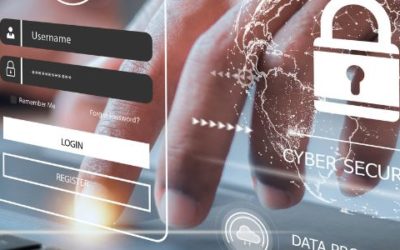Biometric Hacking?! A Look at the Risks of Emerging Technologies
The Use Of Biometric Data Has Great Potential In I.T. But Comes With Potential Downsides.
Biometric data has been in use for quite some time to help identify individuals. However, as of late, it is getting much more press as companies utilize new forms of recognition technology in smartphones and other devices. While many applaud the convenience of unlocking a phone or tablet with a fingerprint or a face, with these technological innovations comes the possibility of biometric hacking.
Apple, in particular, recently released the iPhone X, which features facial recognition technology that enables access. Though the tech is not perfect, it is obviously a step up from the fingerprint scanner technology that has been used in the past several generations of iPhones.
Aside from smartphones and other mobile devices, companies have also been using biometric data to validate movement through facilities. As is the case with many innovations, it’s important to understand the potential security issues when utilizing emerging technologies.
What Are Some Of The Risks Of Biometric Data
Below are just a few of the risks that are associated with using biometric data:
 Where’s The Data?
Where’s The Data?
One of the concerns surrounding biometric hacking is where does the physical biometric data reside? Think about the value of a database full of fingerprints, images of faces, or other personally identifiable information. To prevent biometric hacking, significant resources need to be aimed at not only the emerging technologies themselves but protecting the data that’s being stored as well.
 Technology Is Advancing At A Rapid Pace
Technology Is Advancing At A Rapid Pace
One of the current problems with basic surveillance systems is that while they can record high-quality video, they often can’t identify subjects within the video. However, if facial recognition technology is introduced into these systems, law enforcement agencies and anyone who could gain access to this data would have the ability to detect an individual in a crowd and follow them as long as they were being surveilled. This could create significant privacy issues, especially in large cities like New York, where a network of 3,000 surveillance cameras are situated around the city. While this level of face-in-a-crowd detection isn’t available quite yet, researchers at organizations such as the Department of Homeland Security’s Biometric Optical Surveillance System (BOSS) are rapidly advancing these capabilities.
 Your Iris Is Your Only Iris
Your Iris Is Your Only Iris
Unfortunately, we’ve all grown accustomed to changing our bank account numbers or credit card numbers due to some data breach when it comes to identity theft. While this is an inconvenience, it’s still possible to do it. Think about the possibility of iris scans being stolen from some government or privately-owned database. While it’s possible to change a credit card number, it’s not possible to change your eyes (yet).
 Current Laws Aren’t Properly Prepared To Deal With These Issues
Current Laws Aren’t Properly Prepared To Deal With These Issues
Unfortunately, current law is relatively thin when it comes to biometric data. It has not been definitely determined whether law enforcement can collect biometric data without prior consent – though some have ruled that police can use your finger to unlock an iPhone – and nothing has been said in case of law about more complicated technologies such as facial recognition.
Biometric data will likely be a hot topic among legislators for many years to come as local and federal governments push to utilize more of this data. While there’s no doubt that this type of technology can be used for good, it can also create issues if the wrong individuals compromise it.
At Network Computer Pros, we stay abreast of all developments in information technology, including the ones that come with great promise and risks. If you’re looking for managed IT services for your business, including deploying cybersecurity measures that protect your network’s sensitive data.
You might also like
The 5 Symptoms of Bad I.T. Plaguing Your Business
Welcome to the Network Computer Pros technology clinic, where we diagnose and treat the I.T....
IT Billing Model: 6 Major Benefits of Fixed-Rate Services
Managed IT Services offer significant advantages over traditional hourly billing for businesses in...
Latest LastPass Scam: Everything you should know
Understanding and Protecting Yourself from the Latest LastPass Scam After a sophisticated...



